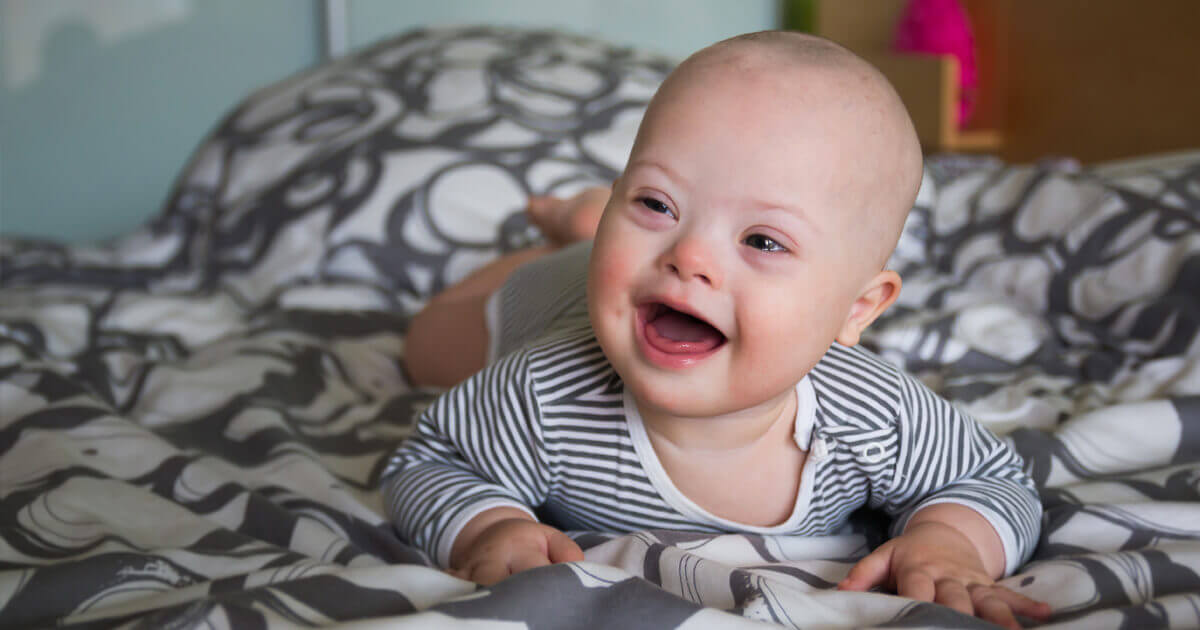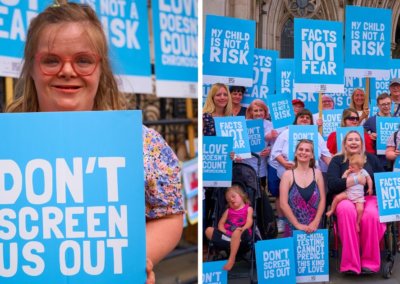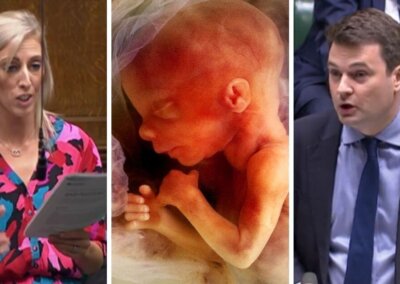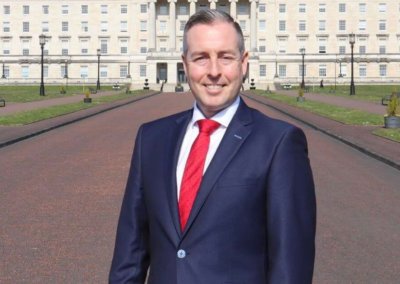Hundreds of people with Down’s syndrome and their families have signed an open letter to Sinn Féin and DUP leaders demanding that they form an Executive and prevent extreme abortion legislation that would introduce abortion for babies with Down’s syndrome, right through to 28-weeks gestation.
The letter to Michelle O’Neill and Arlene Foster has already been signed by over 400 people from the Down’s syndrome community.
Currently, in Northern Ireland, disability-selective abortion for Down’s syndrome is not allowed and therefore, extremely rare.
Figures from the Department of Health in Northern Ireland show that while 52 children with Down’s syndrome were born in 2016, in the same year only one child from Northern Ireland with Down’s syndrome was aborted in England and Wales.
In the rest of the UK abortion is allowed up to birth if a baby is perceived to have a disability, including Down’s syndrome and cleft lip, the latest statistics show that 90% of babies found to have Down’s syndrome through screening are aborted.
Don’t Screen Us Out has also spoken out against attempts by Sinn Féin to shut down the debate around this highly discriminatory aspect of the proposed change to the law by threatening legal action against another political party which highlighted this change.
Lord Shinkwin, an advocate for disability equality, has also strongly denounced the plans to introduce disability-selective abortion to Northern Ireland, and noted that currently, “Northern Ireland is the safest place in the United Kingdom to be diagnosed with a disability”.
Shinkwin said that changing the law to allow abortion on grounds of disability in Northern Ireland sends a message to the people of Northern Ireland and to the disabled citizens of Northern Ireland that people who are born with a disability “are better off dead.”
Lynn Murray, spokeswoman for the Don’t Screen Us Out campaign said:
“There has been an amazing response to the letter to Sinn Féin and the DUP in a very short space of time because this is a matter of huge concern to those in the Down’s syndrome community.
We have seen attempts over the last few days by Sinn Féin to silence people highlighting the impact that the issue will have on the Down’s syndrome community by threatening legal action. We support any effort to help highlight the impact on our community of the law change and condemn any attempts to shut down the debate on this. We want to make it clear that our community will not be silenced on this issue – it is vital that this highly discriminatory aspect of the change in law is discussed openly and the public are aware of the impact that this change will have on the Down’s syndrome community.
“We are asking the Sinn Féin and the DUP not to turn back the clock on people with disabilities, not to leave this ‘burning injustice’ as their legacy, and to listen to the voices of our community who will be most affected by this law change.
“We ask that Michelle O’Neil and Arlene Foster immediately put their differences aside and bring back Stormont to stop the imposing of these deeply discriminatory changes to the law that would bring disability-selective abortion to Northern Ireland.”











